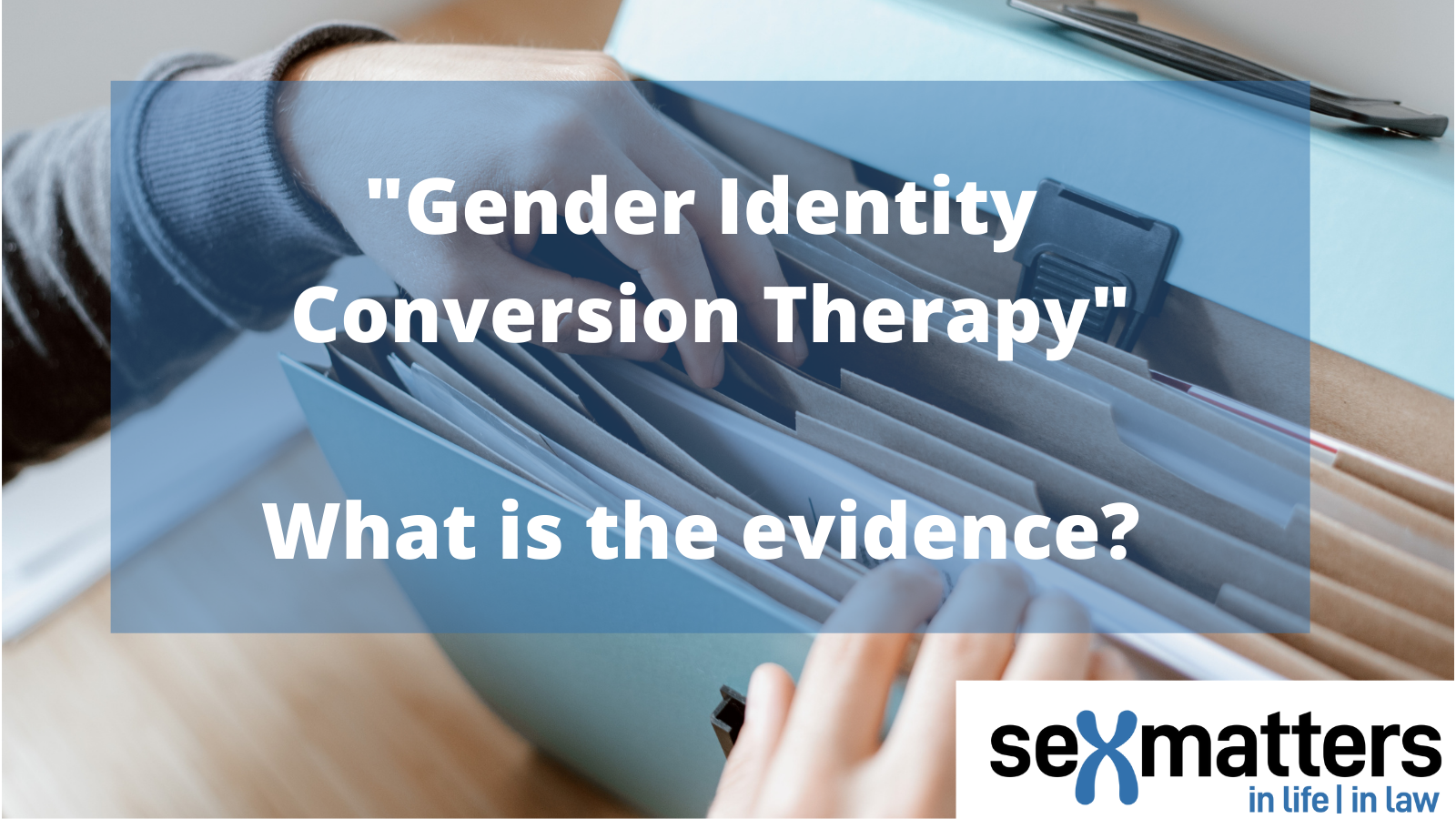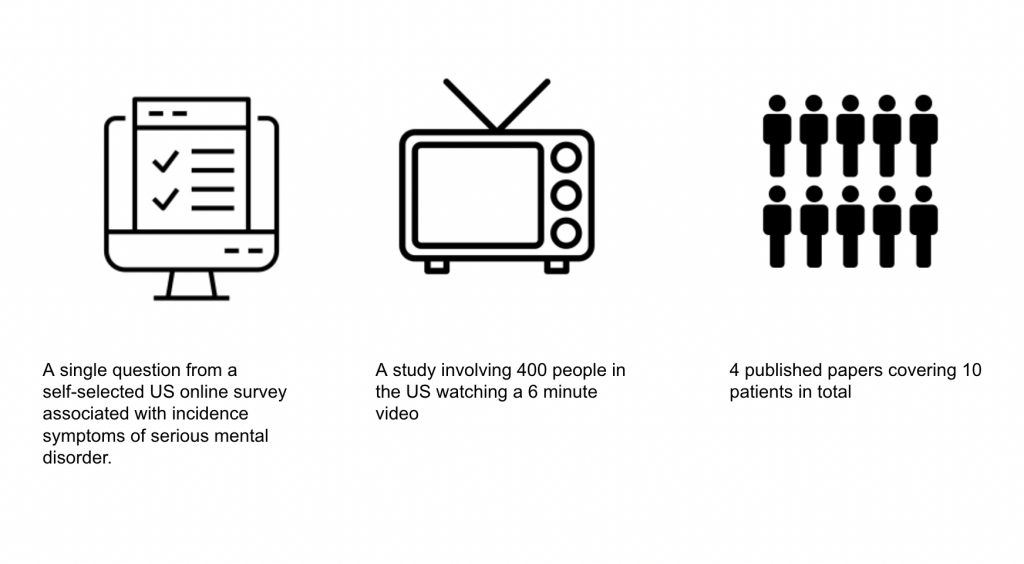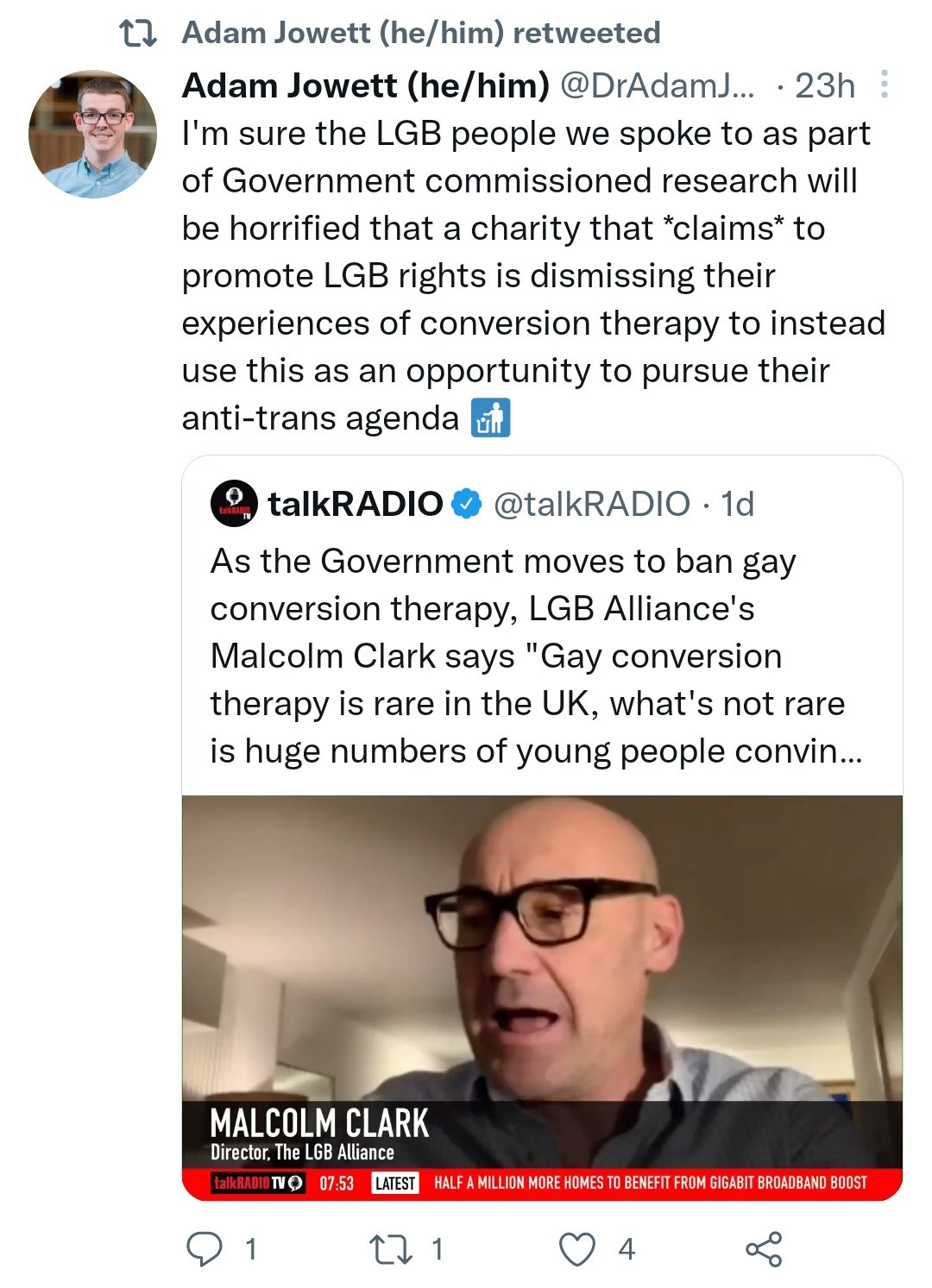GEO research finds no evidence for banning transgender “conversion therapy”
The UK government is proposing making it an offence for therapists to question the gender self-identity of children or vulnerable people. They asked a research team from Coventry University to study the evidence on “conversion therapy”. This is our rapid review of that evidence.

The UK government recently published a consultation document on its proposal to criminalise “conversion therapy” and launched a rushed six-week consultation on it.
They proposed to create a new criminal offence that will allow therapists who question the gender self-identity of children or vulnerable people (including those with other psychiatric diagnoses) to be fined or imprisoned.
While they say it will not interfere with healthcare staff “providing legitimate support for those who may be questioning if they are LGBT”, if children or other vulnerable people say that they are not questioning whether they are transgender, then any therapist that fails to affirm their gender self-identity could be prosecuted.
The Government Equalities Office (GEO) commissioned a research team from Coventry University to undertake a study of evidence on “conversion therapy”. It was completed in June, but only published last week.
Sex Matters has published a rapid assessment of the Coventry University research.
The Coventry report set out to show that “gender identity conversion therapy” is similar to religiously motivated or pseudoscientific attempts to “pray the gay away”.
But it could find no evidence. We were shocked by the weak evidence that the report relies on.
Three datasets
After an exhaustive survey of the academic literature, all the Coventry University team could find was a question in a self-selected survey carried out by a US transgender advocacy organisation, an academic study which involved an online survey who watched a video clip, and a survey of academic literature which found papers covering 10 individual cases. The Coventry University team also interviewed four individual trans people and two who identified as non-binary.
One of the studies included in that survey of academic literature was by the leading psychologist specialising in gender dysphoria, Professor Ken Zucker, involving seven children under ten given open-ended play psychotherapy. The result was that a majority desisted in their cross-sex identities. This is what is viewed as “conversion therapy” in this study.

No evidence on gender identity “conversion”
The Coventry University report says:
“There is increasing evidence that attempts to change a person’s […] gender identity can cause serious harm”.
The core piece of evidence that the study relies on is a US online survey, developed into an academic paper “Association Between Recalled Exposure to Gender Identity Conversion Efforts and Psychological Distress and Suicide Attempts Among Transgender Adults” by a team lead by Dr Jack Turban.
While the Coventry research team assess this study to be of “above average quality” it has already attracted severe criticism published in an academic journal. Roberto D’Angelo et al wrote a critique of it “One Size Does Not Fit All: In Support of Psychotherapy for Gender Dysphoria” in the Archives of Sexual Behavior.
They argue that it is compromised by serious methodological flaws, including the use of a biased data sample, reliance on survey questions with poor validity, and the omission of a key control variable, namely subjects’ baseline mental health status. They say:
“While they claim to have found evidence that [Gender Identity Change Effort] is associated with
psychological distress, what they actually found was that those recalling GICE were more likely to be suffering from serious mental illness… an alternative explanation for the found association – that individuals with poor underlying mental health were less likely to be affirmed by their therapist as transgender – is just as likely, based on the data presented.”
An ideologically driven research study
The Coventry University study does not clearly define or describe “conversion therapy” in relation to gender identity. The approach is mainly to apply conclusions from the evidence related to conversion efforts on sexual orientation.
The broader context for this is the political call for same sex-attracted (LGB) people to stand in solidarity with people who identify as transgender, as expressed in slogans such as “No LGB without the T” and “L with the T”. Such solidarity between groups is legitimate as a political axis for organising. But it is not a defensible approach to analyse evidence about people with different characteristics, experiencing different phenomena.
Dr Adam Jowett, leader of the Coventry University Study, clearly takes a strongly ideological position, going as far as to put words into the mouths of the people interviewed for the government commissioned research, saying that he is sure they would agree with his viewpoint on the LGB Alliance.

Ignoring harm and other conditions
While the Coventry University study references Teen Vogue, Stonewall and the Ozanne Foundation, it does not draw on any analysis that is critical of the affirmation-only approach it promotes. It says nothing about desistance and detransition and the concerns around the unprecedented rise in young people experiencing gender dysphoria and seeking to transition. Our rapid review contains an appendix of over a dozen published articles it could have considered.
Nor does it mention the Cass Review, which is ongoing and is considering how best gender identity services for children and young people should be delivered.
While there is a very little evidence at all in the report on what it calls “gender identity conversion therapy”, the researchers make one shocking statement which says more about the researchers than their subjects.
“Two said psychiatrists treated their gender identities as if they were a symptom of their mental health condition (schizophrenia, PTSD).”
They call this “evidence that some mental health professionals might mistake minority […] gender identities as symptoms of existing mental health conditions ”
Of course the researchers carrying out one-hour interviews were in no position to determine whether psychiatrists treating people with complex mental health conditions are mistaken or not.
Sex Matters says: wait for the Cass Review
Based on our rapid review of the Coventry Studies we conclude:
- The studies present no robust evidence that supports the call for banning or criminalising ‘conversion therapy’ in relation to transgender identity. The concept and practice remains underspecified and ill-defined and there is no
evidence of harm. - Writing the simplistic ‘affirmation’ versus ‘conversion’ binary into criminal and civil law risks doing harm to children and parents, to therapists and other professionals, and to the relationship between them, without any evidence of the harm it purports to be addressing.
- Rushing through any legislation concerning the treatment of children presenting with gender dysphoria before the outcome of the Cass Review is released would be irresponsible and counterproductive to evidence-based
policy making.
